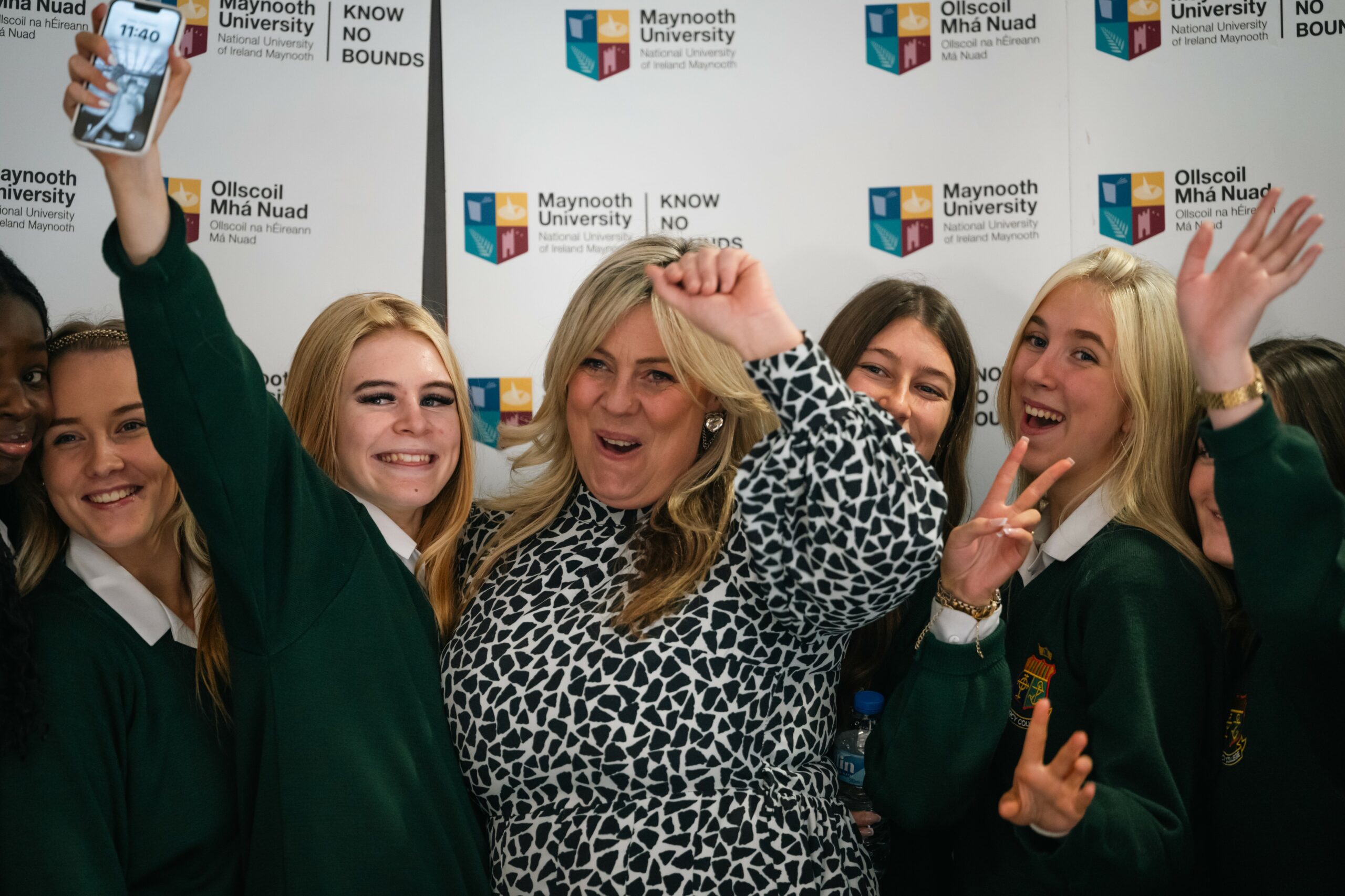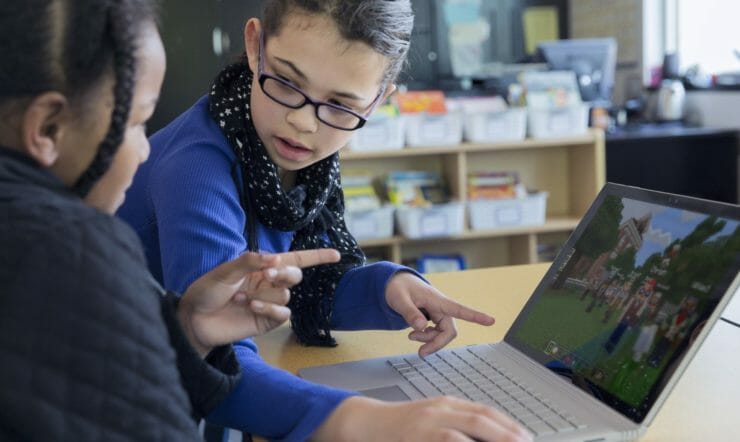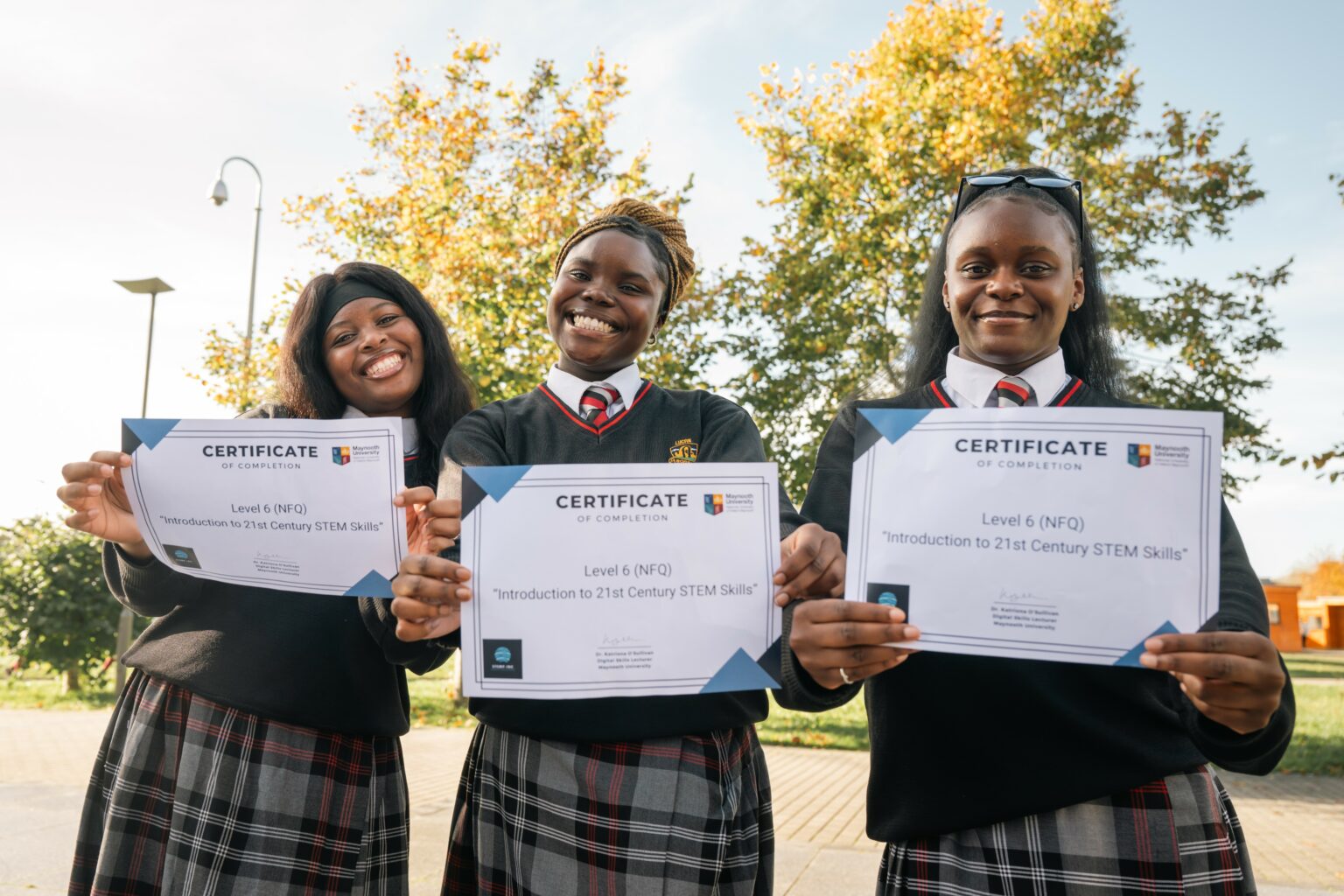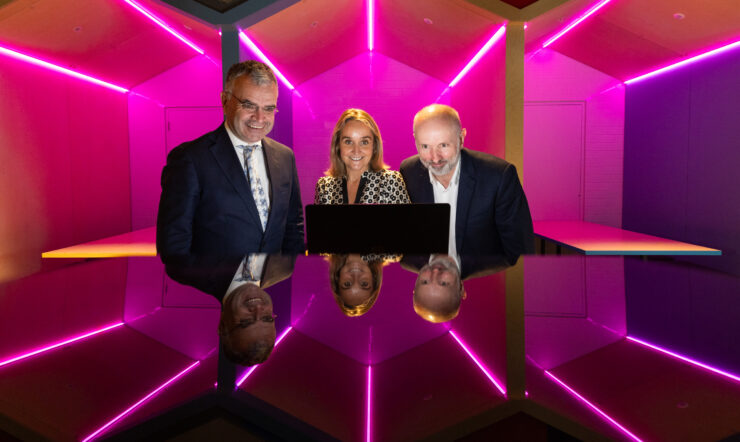As our digital economy evolves, new and emerging technologies continue to generate opportunities for communities, individuals, and businesses across the country. The potential of these technologies can only be unlocked, if everyone, everywhere has the skills to do so.
Unfortunately, there remain significant imbalances in STEM in Ireland. According to the Higher Education Authority, 43% of men study STEM at third level, compared to only 19% of women. Furthermore, students from disadvantaged areas tend to have less opportunities to study STEM subjects at school, according to Maynooth University.
At Microsoft, we believe that everyone, irrespective of gender, background or socioeconomic status, should have equal opportunities to thrive in tomorrow’s workplace.
Supporting and encouraging more young women to pursue STEM qualifications at third level is key to addressing such inequities and ensuring a more diverse STEM sector in the future.
That’s why Microsoft has been working with Maynooth University to deliver STEM Passport for Inclusion since 2021, an initiative aimed at addressing inequalities in accessing STEM careers among post-primary students, particularly women, in socially disadvantaged communities.
The programme’s innovative approach, which combines an educational qualification (Level 6 NFQ), education supports, and mentoring from industry role models, provides a unique pathway for students to progress to third level education and achieve a STEM qualification.
1,250 students have participated in the pilot programme since its launch two years ago, leading to a significant increase in the students’ confidence and intention to pursue STEM education at third level.
This week, together with Maynooth University, Science Foundation Ireland, and the Department of Education, we were delighted to announce the national expansion of STEM Passport for Inclusion, which will provide a further 5,000 post-primary students across the country with access to this impactful initiative.

Students from Mercy College Coolock are pictured with Dr Katriona O’Sullivan, Digital Skills Lecturer at Maynooth University during the recent STEM Passport for Inclusion graduation
As the initiative’s lead industry partner, our Dream Space education team has played a key role in both the co-design of the Level 6 (NFQ) accredited STEM Passport module and delivery of the STEM Passport curriculum to students in Microsoft Dream Space venues in both Dublin and Belfast.
More than 200 Microsoft employees are actively supporting the STEM Passport for Inclusion mentoring programme, in addition to educators and other private and public sector organisations. By sharing their experience of working in the STEM industry and the career opportunities that it has unlocked for them, mentors play an important role in helping to inspire students taking part in the programme to consider a STEM course at third level. And finally, we have provided match funding to support the delivery and expansion of the initiative to date.
In recent months, Microsoft has also rolled out a range of new AI learning opportunities. An “Introduction to AI” course provides those with little or no understanding of AI with the foundational knowledge and skills to engage more confidently with the technology. While ‘Skills for Jobs’ is designed to help graduates and mid-career professionals to upskill and specialise in AI with bespoke course courses and certificates.
As we look ahead, we remain committed to playing our part to ensure that every person has the opportunity to skill up to play an active role in our digital economy and that those living in socially disadvantaged areas are given equal opportunities. In so doing, we will realise our ambition to ‘Skill Up Ireland’.
To learn more about STEM Passport for Inclusion and the additional training initiatives we’re providing to help Skill Up Ireland, visit: https://pulse.microsoft.com/en-ie/skill-up-ireland/









